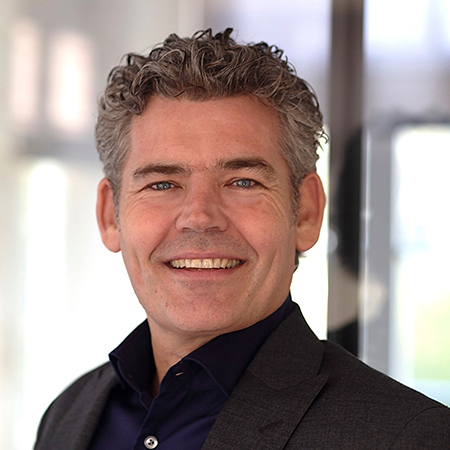Operational Excellence (OPEX) has become a crucial focus for manufacturers determined to remain competitive in today’s fast-paced, efficiency-driven environment. From Lean and Six Sigma to data-driven decision-making, these strategies help streamline operations, minimise waste, and drive continuous improvement.
However, simply implementing OPEX tools and techniques is only part of the solution. Without engaging in a few vital conversations, the transformation is unlikely to last.
In this article, we explore three often-overlooked discussions that can determine the success of OPEX and explain how TBM Consulting can help build the necessary systems, frameworks, and culture for sustainable success.
Leveraging Human Capital for Operational Excellence
When considering Operational Excellence services, the focus typically falls on technology, systems, and processes—automated production lines or Lean tools, for example. Whilst these elements are undeniably important, one critical factor is often underestimated, or even ignored altogether: the workforce.
People are the driving force behind operational success. Advanced technology alone cannot reach its full potential without engaged and motivated employees. Frontline workers, managers, and leaders are the ones who bring improvement initiatives to life. Yet, human capital is frequently an afterthought in the conversation about OPEX.
At TBM Consulting, we recognise the central role that people play in achieving Operational Excellence. Rather than focusing solely on technology and processes, our approach begins with the team. The goal is to foster a culture where every individual, from the shop floor to the boardroom, feels empowered to contribute to continuous improvement. This includes equipping staff with the right tools, skills, and opportunities to make a genuine impact.
Consider the case of a large automotive manufacturer. Before any new systems were introduced, we began by training employees in Lean principles. This empowered workers to take ownership of improvements, leading to a 20% increase in productivity. The gains didn’t come from new technology but from employees identifying and addressing inefficiencies themselves.
The key takeaway? Focusing on the workforce is essential. Without it, even the best OPEX strategies will fail to deliver.
Driving Behavioural Change to Ensure Lasting Impact
Adopting OPEX methodologies like Lean and Six Sigma is a positive step. However, the real challenge lies in ensuring behavioural change across the organisation. Tools and systems alone cannot transform a business—people are the ones who drive meaningful change. This is why shifting mindsets and behaviours is crucial to the long-term success of any OPEX initiative.
People are naturally resistant to change. Established habits can be hard to break, and without proper guidance, even well-designed improvement plans may fall short. This is where the expertise of consultants such as TBM becomes invaluable. Rather than focusing solely on systems, we provide leadership development solutions and work closely with leadership teams to align behaviour with OPEX goals, ensuring that the desired changes become ingrained across the organisation.
For example, an aerospace company had implemented several Lean initiatives but was struggling to sustain benefits. We helped the company to refocus its leadership strategy, aligning incentives and accountability structures with OPEX objectives. Within a year, the company saw a 15% reduction in defects and faster production cycles—improvements that resulted from a shift in how employees approached their work.
The lesson is clear: successful OPEX is not just about giving people new tools. It’s about changing how they think and operate within the organisation.
Sustaining Operational Excellence Gains Over the Long Term
Achieving quick wins through Operational Excellence is commendable, but maintaining those gains over time is where many organisations falter. Often, OPEX is treated as a one-off project, with a clear start and end, rather than a fundamental shift in how the business operates. This short-term mindset can cause momentum to wane once the initial improvements have been realised.
To ensure lasting success, OPEX must become an integral part of the company’s culture—something that TBM Consulting excels at facilitating. Rather than implementing systems and leaving the company to manage alone, we help establish long-term frameworks that ensure continuous improvement is woven into the fabric of the organisation.
A global consumer goods company provides an excellent example. By partnering with us to sustain its OPEX efforts over five years, the company regularly assessed and adapted its processes to stay aligned with market changes. The result was sustained cost reductions, productivity gains, and a culture where continuous improvement became an everyday practice, rather than a one-time initiative.
While sustaining OPEX gains requires ongoing effort, neglecting to adopt these principles in the first place can have far-reaching consequences for operational efficiency and profitability.
Avoiding the Hidden Costs of Ignoring Operational Excellence
The advantages of Operational Excellence—greater efficiency, reduced costs, and improved customer satisfaction—are widely recognised. However, the costs of ignoring OPEX are often underestimated. Companies that fail to adopt effective OPEX strategies frequently encounter hidden inefficiencies, increased operational costs, and a decline in customer satisfaction, all of which gradually erode profitability and market position.
These inefficiencies accumulate over time, and reversing their impact becomes increasingly difficult. Many organisations focus on the immediate costs of implementing OPEX, without realising that the long-term costs of inaction are far more damaging. TBM Consulting works with companies to uncover and address these hidden inefficiencies before they become deeply rooted.
For instance, a global electronics manufacturer experienced shrinking profit margins due to inefficiencies in its supply chain management. We conducted an in-depth operational review, identifying bottlenecks that quietly inflated costs. With a tailored OPEX approach, the company reduced supply chain costs by 12%, without any major capital investment.
Inaction not only hampers efficiency but also jeopardises customer loyalty and competitive positioning. In today’s marketplace, the cost of inaction can far outweigh the investment required to implement OPEX.
Gaining Cross-Industry Insights for Greater Efficiency
While Operational Excellence is most commonly associated with manufacturing, its principles apply across a wide range of industries, from healthcare to finance. Manufacturers can learn valuable lessons by examining how other sectors have successfully implemented OPEX strategies.
For instance, Lean methodologies have helped healthcare organisations reduce patient waiting times and improve hospital efficiency. Meanwhile, Six Sigma has been used in financial services to improve transaction accuracy and streamline operations. These cross-industry examples offer manufacturers important insights that can be adapted to their own challenges.
At TBM Consulting, we bring cross-industry expertise, offering fresh perspectives on operational efficiency. By drawing on best practices from other sectors, we help manufacturers innovate, optimise processes, and achieve greater returns on their OPEX investments.
Why Partnering with Consultants Matters for Long-Term OPEX
Operational Excellence is more than adopting a few new tools—it’s about embedding a culture of continuous improvement that fosters long-term growth and competitiveness. Sustaining OPEX requires more than just a one-off project; it demands a fundamental shift in how a business operates. This is where operations consultants like TBM Consulting provide immense value.
By partnering with us, companies can ensure that OPEX becomes fully integrated into their culture, leadership strategies, and day-to-day operations. From driving behavioural change to uncovering hidden inefficiencies, TBM Consulting provides the expertise needed to ensure that Operational Excellence delivers lasting, measurable results.






